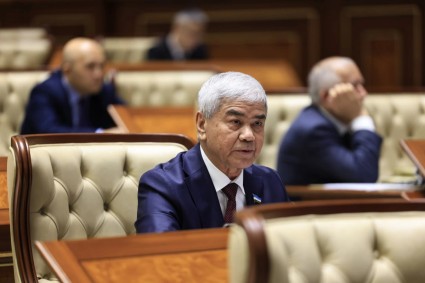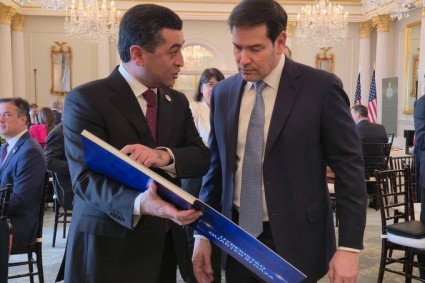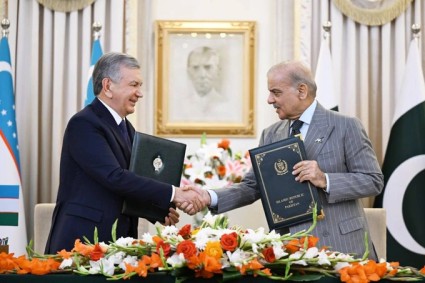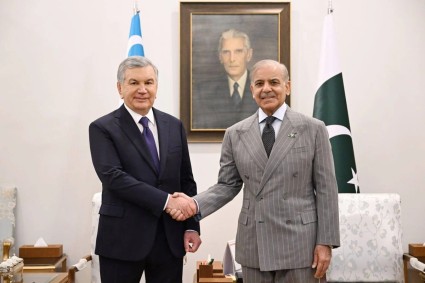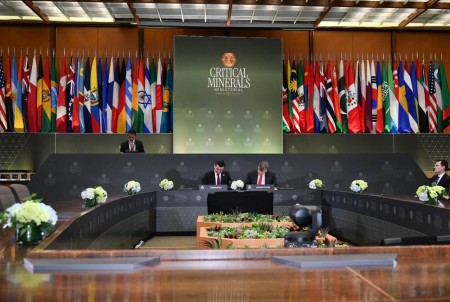Today, the U.S. Agency for International Development (USAID) launched the 12th annual Central Asia Trade Forum themed, “Digitalization of Customs Services. Pathway to Paperless Trade” in Astana, Kazakhstan. It is a flagship international two-day event for advancing connectivity and trade.
The forum brought together Central Asian customs administrations to discuss ongoing efforts in developing digital solutions and services, adopting enabling technologies (such as the use of big data, telematics and cloud services), increasing operational performance, and facilitating the reinvention of how customs administrations operate. Over 200 representatives from customs administrations of Central Asia, Azerbaijan, Georgia, Korea, Latvia, and the United States got together to learn a wide range of advanced digital tools and technologies.
In her opening remarks, USAID Central Asia Regional Economic Development Office Director Laura Cizmo, noted, “This trade forum has been held every year since 2011. It continues a tradition of collaboration between the U.S. and the Central Asian nations that started back in the 20th century.”
USAID’s Trade Central Asia activity is organizing the Central Asia Trade Forum in partnership with the State Revenue Committee of the Ministry of Finance of the Republic of Kazakhstan, the State Customs Service under the Ministry of Finance of the Kyrgyz Republic, the Customs Service under the Government of the Republic of Tajikistan, the State Customs Committee of the Republic of Uzbekistan, and Deutsche Gesellschaft für Internationale Zusammenarbeit (GIZ) GmbH as well as media representing the Astana Times, Business Mir Magazine, Kazakhstan Press Club, Kapital.kz, Profit.kz, and TransLogistics.
Participants discussed customs digital reform agenda: latest innovations and the role of digital enforcement; accelerating digitalization for enhanced transit and trade facilitation; Trans-Caspian international transport route; international transit systems; regional cooperation within the National Trade Facilitation Committees, anti-corruption measures can improve customs policy, its implementation, and increase duty and tax collection and exchange of pre-arrival information.
Central Asia has undergone a radical transformation. Over the last five years alone, the volume of intra-regional trade has doubled. Central Asian countries’ trade with the outside world is also growing dynamically. It increased by 54 percent over five years, and now amounts to $167 billion. Trade is now a major driver of economic growth across the region.
For a decade, through this iconic forum, USAID has brought together over 10,000 participants from more than 42 countries to collaborate and cooperate on improving connectivity, deepening competitiveness, and expanding trade for accelerated, sustainable economic recovery and resilience in Central Asia.


